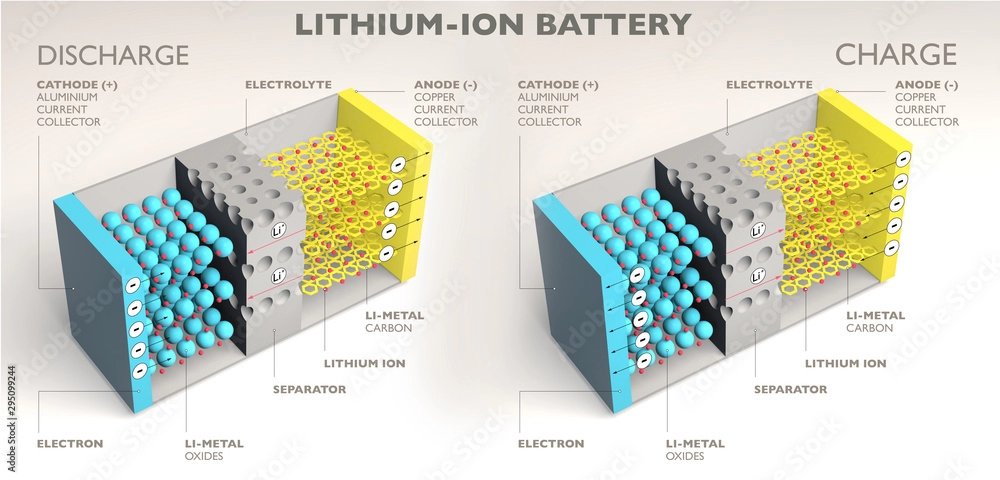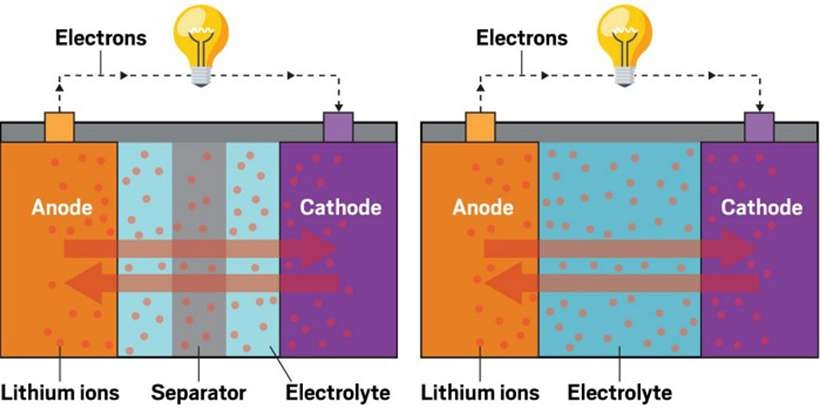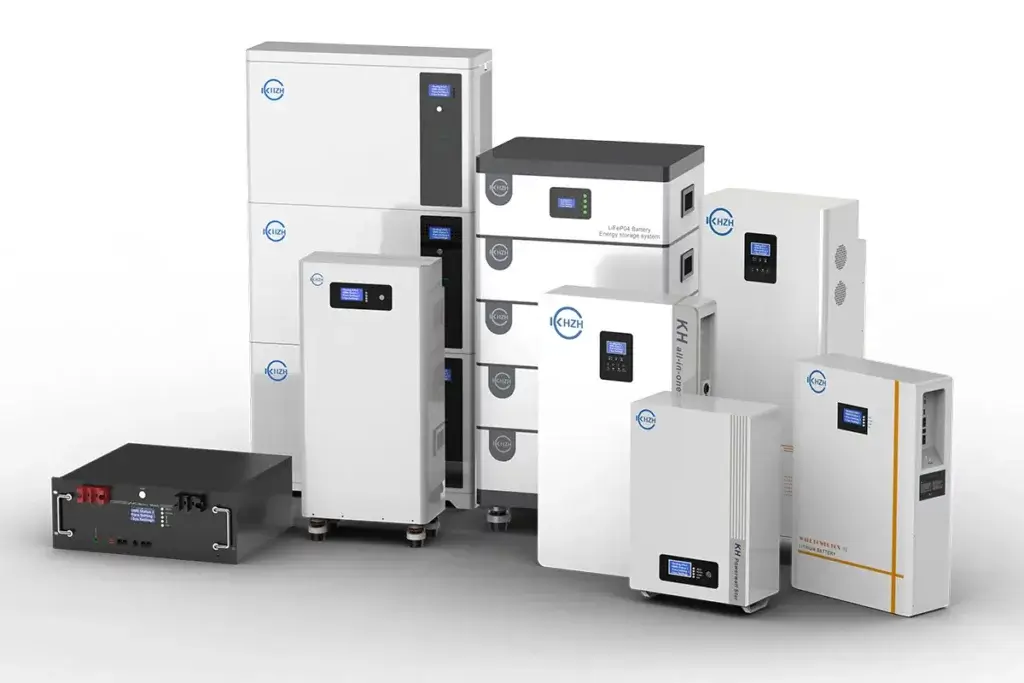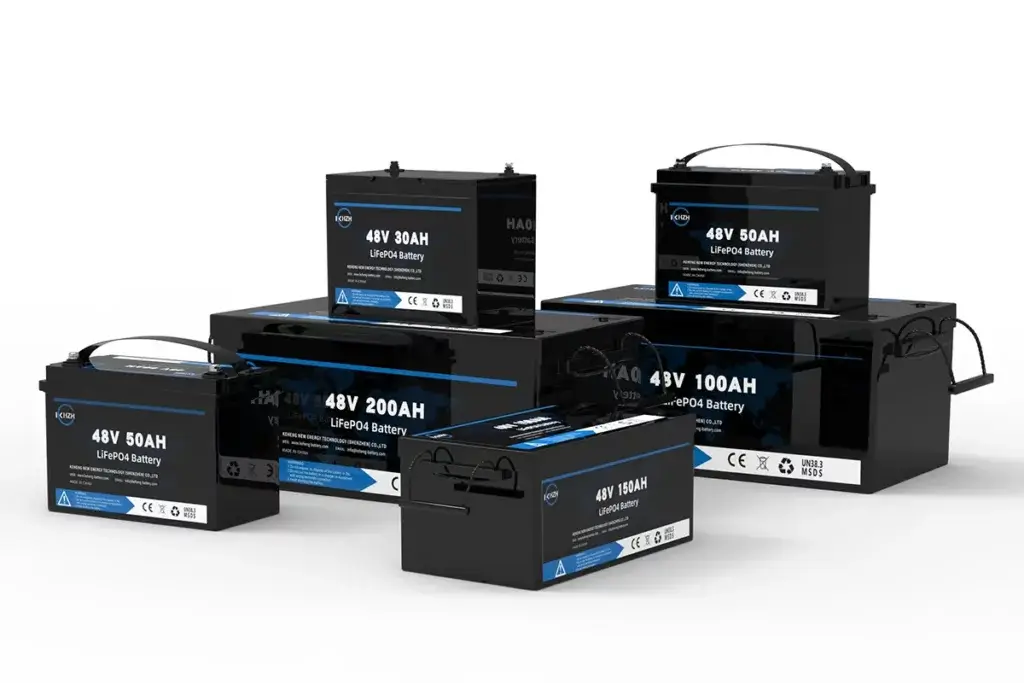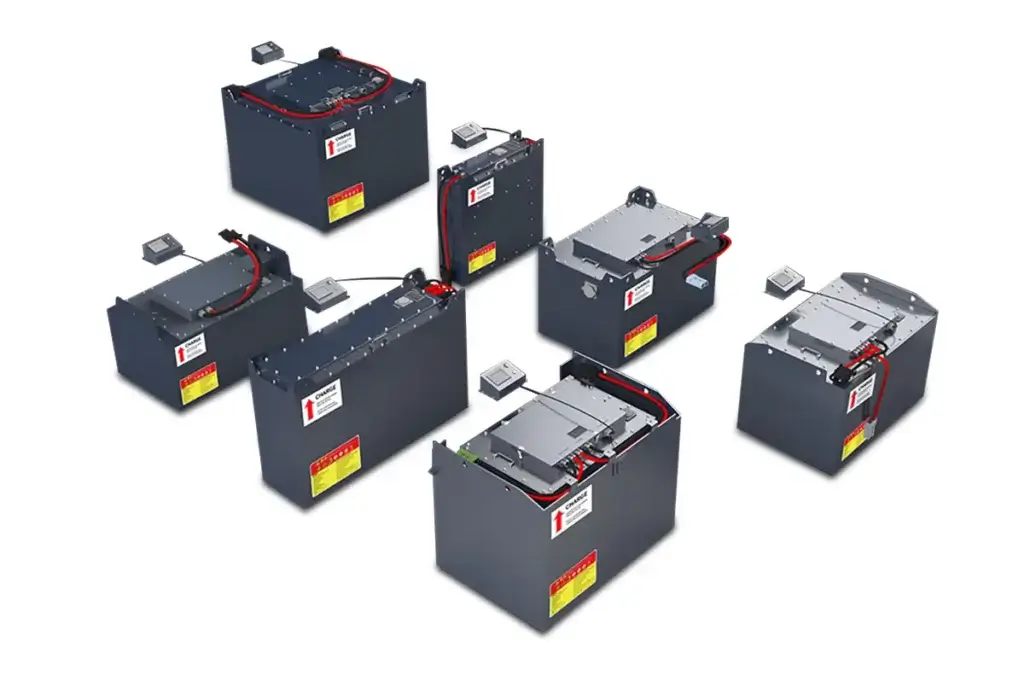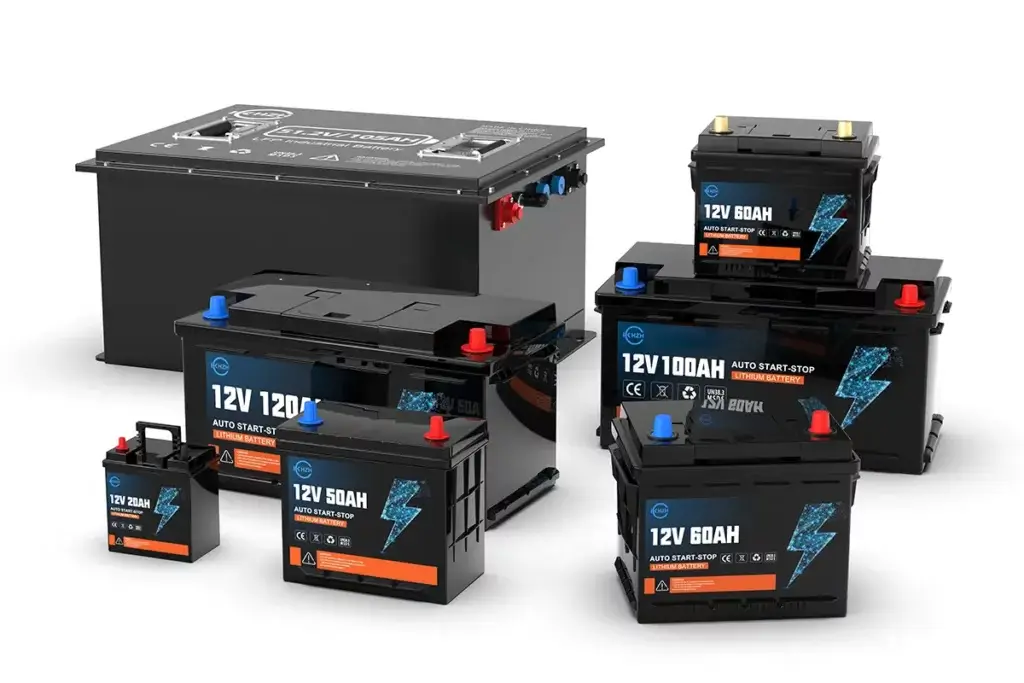Lithium batteries have revolutionized the way we power our devices, from smartphones and laptops to electric vehicles and renewable energy systems. However, like all technologies, they eventually reach the end of their lifespan. So, what happens to them? Can they be repaired, reused, or recycled? At KHZH, we often receive inquiries about the lifespan and purchase value of used lithium batteries. In this article, we will explore the potential of used lithium batteries – highlighting their advantages, risks, and how to manage them responsibly.
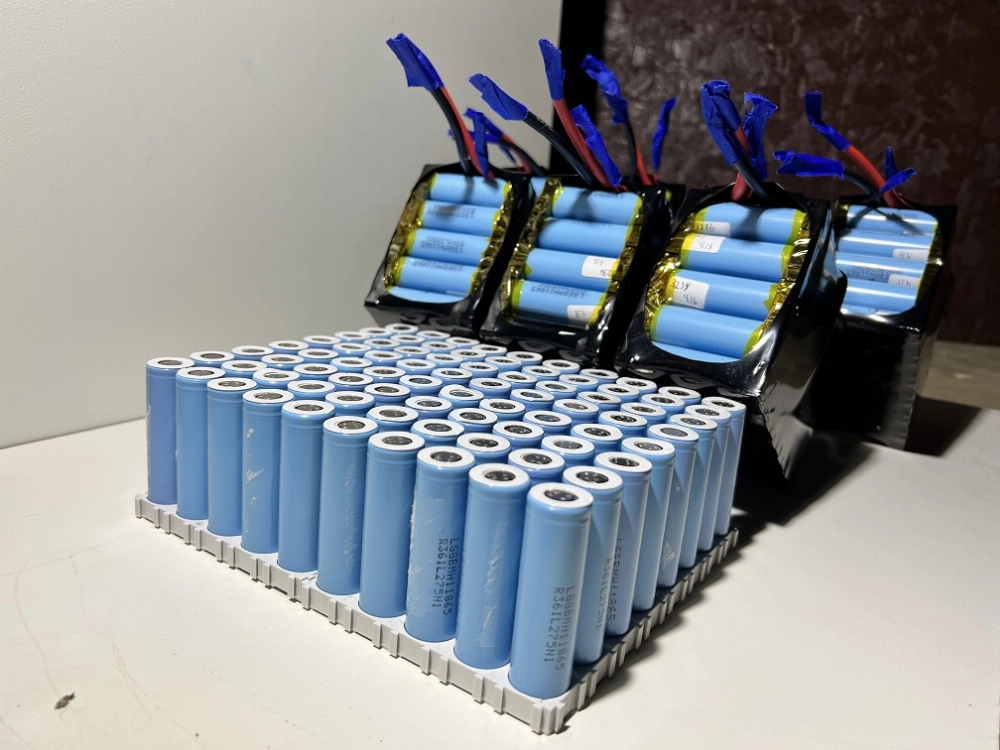
Part 1: Can Used Lithium Batteries Be Repaired?
In short, the answer is yes, but with caveats. Used lithium batteries can sometimes be repaired or refurbished, but this is not always guaranteed. The feasibility of repair depends on the age, condition, and usage history of the battery.
Over time, lithium-ion batteries naturally degrade due to repeated charge and discharge cycles. This is an inherent part of their lifecycle. As a battery is used, it loses its ability to effectively hold a charge, resulting in a decrease in overall capacity. However, some used lithium batteries can be repaired through processes such as cell balancing, battery reconditioning, or replacing damaged individual cells.
It’s important to note that the repair process is not always successful. If a battery has been excessively discharged, exposed to high temperatures, or is simply too old, attempting to repair it could be counterproductive. In these cases, the safety and integrity of the battery may be compromised.
Part 2: Pros and Cons of Used Lithium Batteries
Advantages of Used Lithium Batteries
- Cost Savings: One of the primary benefits of purchasing used lithium batteries is the lower cost. Used batteries are typically more affordable than new ones, making them a viable option for businesses looking to reduce expenses – especially for applications with low energy requirements.
- Environmental Friendliness: Recycling and reusing used lithium batteries helps reduce waste and minimize environmental impact. By repurposing these batteries instead of sending them to landfills, we can reduce the demand for new raw materials and reduce your business’s carbon emissions.
- Availability: As battery technology continues to advance, older models of lithium batteries are often still in circulation. Businesses needing replacements for older equipment may find these used batteries a cost-effective and practical solution.
Disadvantages of Used Lithium Batteries
- Performance Degradation: Over time, used lithium batteries lose their ability to hold a charge, and their overall capacity decreases. This means that even if a used battery initially appears to function well, its performance may decline more rapidly, especially if it has already undergone numerous charge cycles.
- Risk of Failure: While it’s possible to find used batteries in good condition, there’s always a risk that they may fail prematurely. For critical applications such as backup power systems, medical devices, or electric vehicles, the risk of using a used lithium battery is higher if they are near the end of their lifespan.
- Safety Concerns: Lithium-ion batteries, whether new or used, pose safety risks if mishandled, overcharged, or exposed to extreme conditions. Used batteries may have already experienced such issues, increasing the potential risk of leaks, fires, or even explosions.
Part 3: Potential Uses for Used Lithium Batteries
Not all used lithium batteries are destined to be discarded. In fact, many can be repurposed for secondary uses or recycled to extract valuable materials. Here are some ways in which used lithium batteries can still provide value:
- Energy Storage Systems: Batteries with reduced capacity can still be used for energy storage. For example, businesses using solar power can use used lithium batteries as a cost-effective storage solution, helping to lower costs while still providing reliable energy storage. Learn more about how to choose solar batteries for energy systems.
Understanding the Use and Lifespan of Used Lithium Batteries
Part 1: Reusing Used Lithium Batteries
While used lithium batteries may not last as long as new ones, they still have valuable applications in various fields:
Electric Vehicles (EVs)
Some EV manufacturers repurpose second-life batteries (batteries initially used in consumer electronics or vehicles) for stationary energy storage solutions. These used lithium batteries are ideal for storing energy for the grid and homes. Electric Vehicles (EVs)
Power Tools and Low-Energy Devices
Used lithium batteries with some remaining charge can be repurposed to power low-energy devices like power tools, small appliances, and toys. In these cases, a small reduction in battery capacity doesn’t drastically affect the device’s performance.
Battery Recycling
Even when a lithium battery is no longer usable, it can still be recycled. Recycling allows for the recovery of valuable materials like lithium, cobalt, and nickel, which can be used to create new batteries, promoting sustainability.
Part 2: How Long Do Used Lithium Batteries Last?
The lifespan of a used lithium battery depends on several factors:
- Age: A battery’s age is a factor; batteries a few years old may still have significant usable life, depending on their usage and maintenance history.
- Cycle Count: Each time a battery is charged and discharged, its capacity decreases. Typically, lithium-ion batteries can handle approximately 300-500 cycles before they start showing significant degradation.
- Usage Conditions: Extreme temperatures, overcharging, and deep discharging can accelerate battery wear.
On average, a used lithium battery that has been through multiple charge and discharge cycles can last anywhere from 1 to 2 years. This largely depends on the specific battery model and its previous usage.
Part 3: How to Avoid Risks When Buying Used Lithium Batteries
Purchasing used lithium batteries can be a cost-effective option, but it’s essential to navigate potential risks. Here’s how to avoid scams and substandard products:
Know Your Seller’s Reputation
Always buy used lithium batteries from trusted suppliers or authorized dealers. Look for suppliers that offer warranties and provide documentation about the battery’s previous usage and cycle count.
Ask About the Battery’s History
When buying a used battery, ask about its age, cycle count, and whether it has been refurbished or tested. Transparency is key to ensuring you’re making a safe purchase.
Be Cautious of Pricing
If a used lithium battery is priced suspiciously low, exercise caution. A significant price difference could indicate that the seller is trying to offload a defective product.
Test Before Buying
Whenever possible, test the battery before buying it. Assess its charging time, capacity, and overall performance to verify that it is still in working condition.
Part 4: How to Identify Used Lithium Batteries
If you suspect you’ve unknowingly purchased a used lithium battery, be aware of the following signs:
Appearance
Check the battery for any visible damage, such as dents, swelling, or cracks. These may indicate that the battery has been heavily used or improperly stored.
Battery Life
If the battery drains much faster than expected or takes significantly longer to charge, it may indicate that the battery is nearing the end of its life or has been overused.
Cycle Count
Many modern devices come equipped with battery management systems that allow you to check the cycle count. A high cycle count indicates that the battery has been used for a considerable amount of time.
Part 5: Properly Disposing of Used Lithium Batteries
Responsible handling of used lithium batteries is essential for safety and environmental protection. Here’s what you should do:
Recycling
Never dispose of lithium batteries in regular trash. Always ensure that they are taken to certified battery recycling facilities to minimize environmental impact and recover valuable materials.
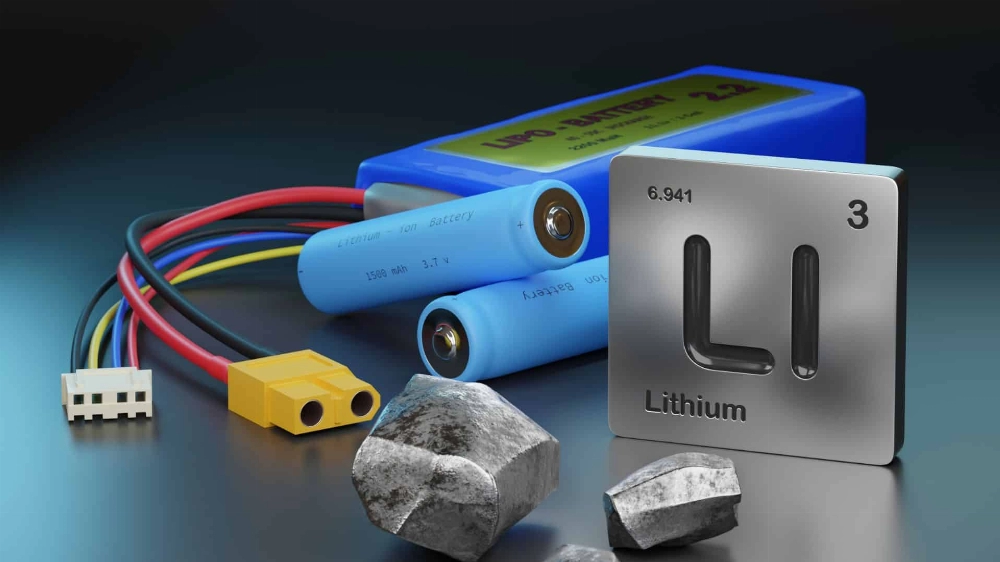
Properly Managing Used Lithium Batteries
Used lithium batteries can still hold value and contribute to sustainability if managed correctly. However, it’s crucial to weigh the pros and cons and fully understand their limitations before deciding to purchase or use them for your business. Whether you plan to reuse, recycle, or dispose of these batteries, always follow the necessary steps to ensure safety and maximize their value.
Recycling: A Sustainable Choice
Recycling used lithium batteries is an environmentally responsible approach that minimizes environmental impact. Many centers are equipped to process these batteries, recovering valuable materials like lithium, cobalt, and nickel, which can be reused in future production. By recycling, you contribute to waste reduction and support a circular economy.
Storage: Safe Storage
If you’re not ready to dispose of or reuse your batteries, store them in a cool, dry environment with a charge level of 40-60%. This will maintain the health of the battery for future use and ensure it remains in optimal condition.
Avoid Overcharging: Protect Your Batteries
Overcharging can severely damage batteries and shorten their lifespan. Always ensure your charger is compatible with your battery and disconnect it once fully charged to prevent unnecessary wear and tear.
Part 8. KHZH Batteries: Quality You Can Trust
Now, let’s explore how KHZH addresses these concerns… At KHZH, we understand that purchasing used lithium batteries raises concerns about safety, reliability, and performance. That’s why we never sell used batteries. As a leading manufacturer of custom lithium batteries, we only offer brand-new products, rigorously tested and manufactured to meet the highest industry standards.
We are committed to transparency and ensuring our customers make informed decisions. Choose KHZH, and you can rest assured that you’re getting the highest quality lithium batteries, not second-hand or refurbished products.
Part 9. Conclusion
With proper handling, used lithium batteries can still be valuable and support your sustainability goals. However, it’s important to carefully consider their advantages, disadvantages, and limitations before deciding to use them. Whether you’re looking to recycle, reuse, or dispose of used lithium batteries, always take the necessary steps to ensure safety and maximize their potential.
At KHZH, we offer the safest and most reliable lithium battery solutions. When you choose us, you’re choosing top-tier quality, consistency, and peace of mind. Choose KHZH, and you can trust that you’ll never face the risks associated with dealing with used batteries, because we’ve got you covered.
Okay, I understand and I’m ready to receive the source text, initial translation, and expert suggestions within the specified HTML tags. I will then provide the edited translation, incorporating all instructions and ensuring accuracy, fluency, style, and appropriate terminology. The output will consist solely of the edited translation within the HTML tags.

